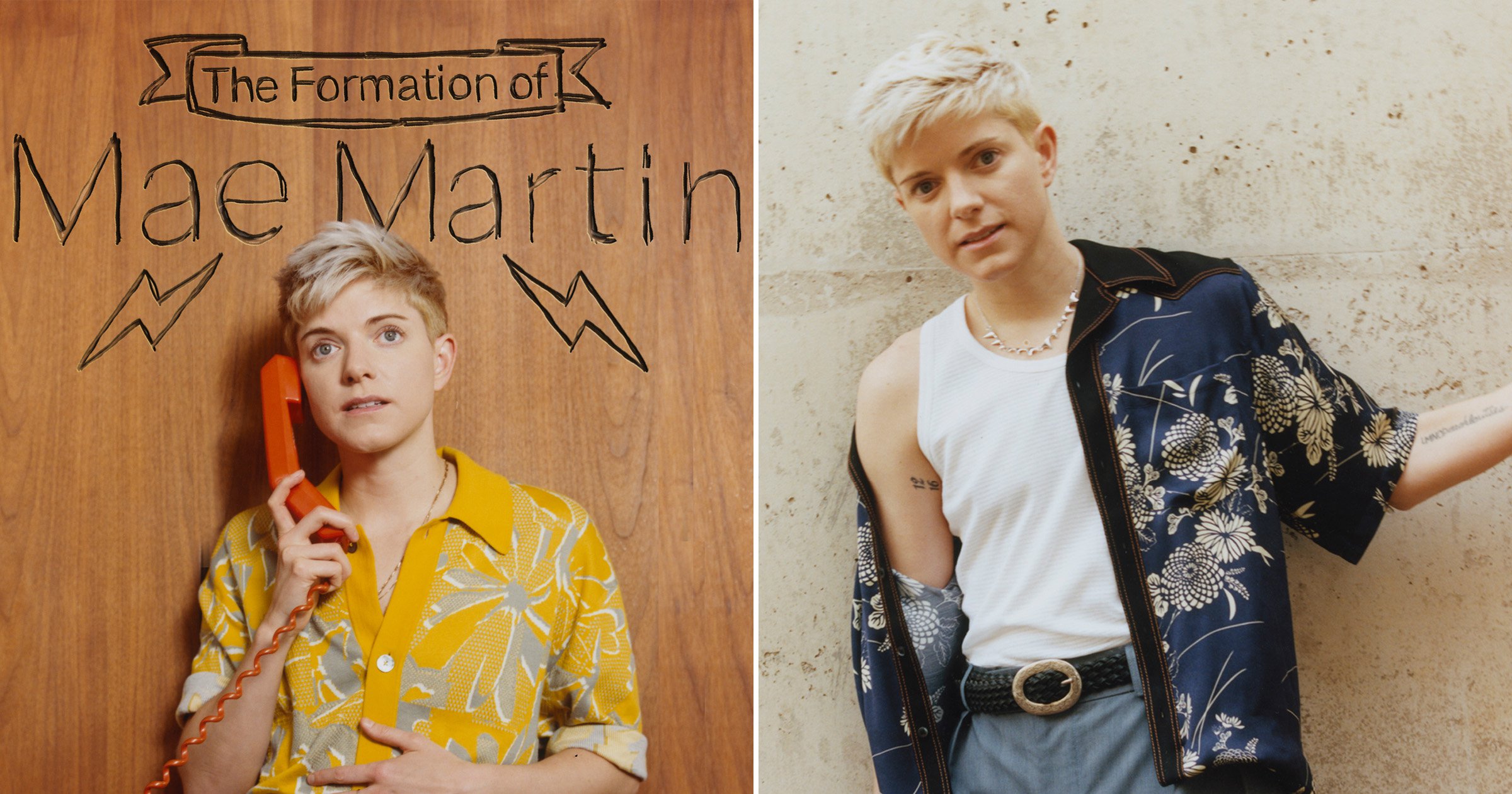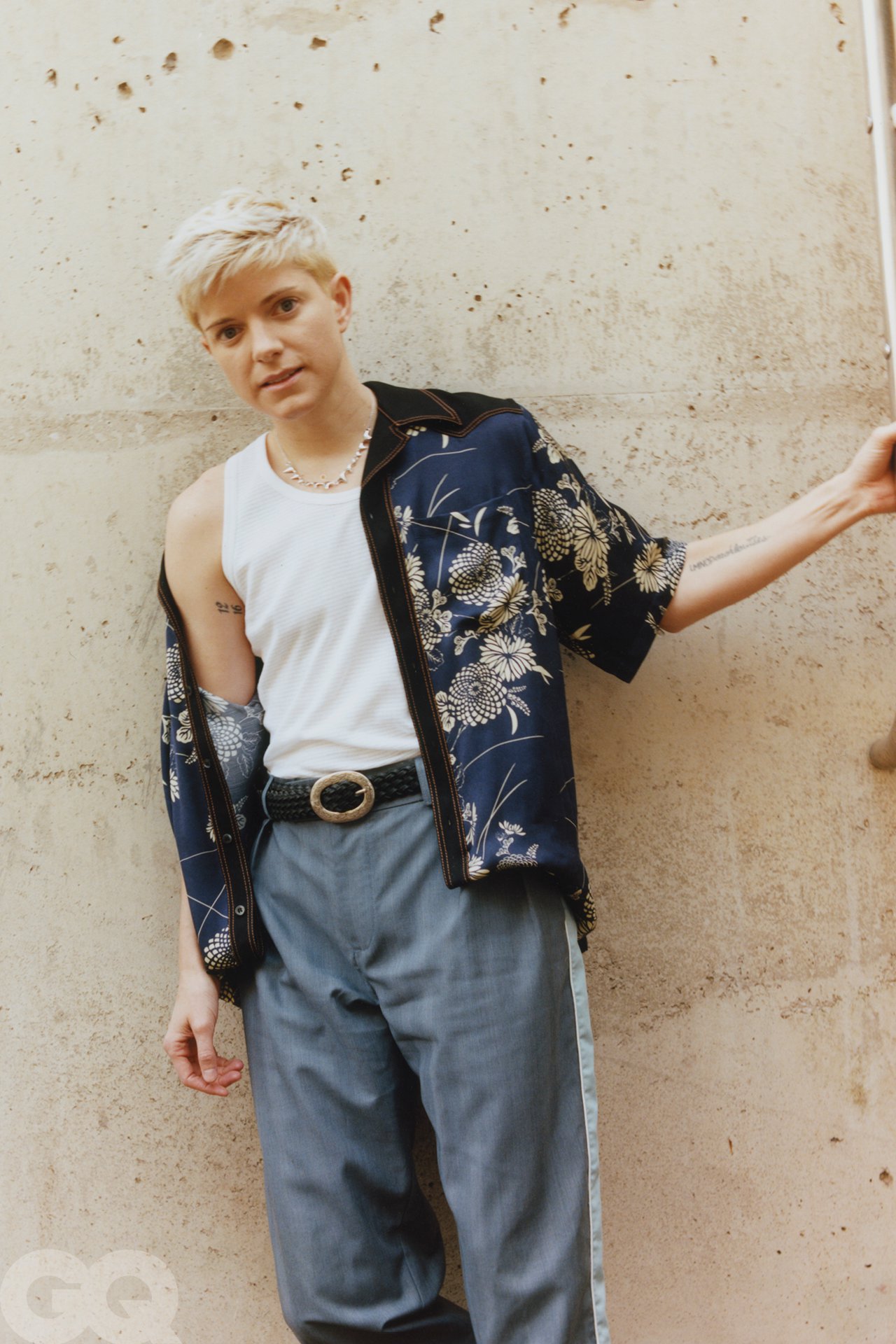
Mae Martin has hit back after trolls criticised them for speaking about identity in their new interview with GQ Hype.
The comedian, actor and screenwriter, 35, told about the frustrations that arise from the conversation around gender identity, explaining: ‘It’s so frustrating that so much of identity is about comparison, I just feel like myself.
‘I don’t even feel non-binary. I just wake up, have a coffee and go to work.’
Mae added: ‘I remember middle-aged women forcing me out of the girls’ changing room when I was ten, because I had my towel around my waist and short hair.
‘And being so confused, because I don’t feel like I want to go to the men’s changing room, and I don’t feel like I’m safe in the girls’ changing room.
‘So I remember just sitting there with wet hair, in between the two changing rooms. It was like the perfect metaphor… the chlorine drying on my skin and waiting for my Dad to come out of the men’s changing room.’
The interview was posted on British GQ’s Twitter account, but trolls took to the comments to discuss Mae going by the pronouns They/Them instead.
The Feel Good creator shared the post, adding: ‘Well this comment thread is a steaming pile of poo, but I really liked wearing this yellow shirt, thanks .
‘Also I do really really love talking about things other than identity, but when I’m asked about identity I’ll talk about identity, you know?’

Fans replied to Mae in droves, voicing their support and writing: ‘Great response. Keep on keeping on, and try not to read the comments sections.’
Another added: , after watching Feel Good. For every thread that’s a steaming pile of poo (which this one definitely is) there’s a thread of adoring fans that your work has spoken to. We love you.’
Mae added in the interview that they hope gender won’t be the thing that defines people in future, explaining: ‘All the conversation is focused around pronouns and things like that, and I’m like, however you read me is fine. I know how I read myself.
‘I’d love for us to reach a point where gender didn’t have to be the defining aspect of our identity but we’re far from that.’
Read the full feature online at




















